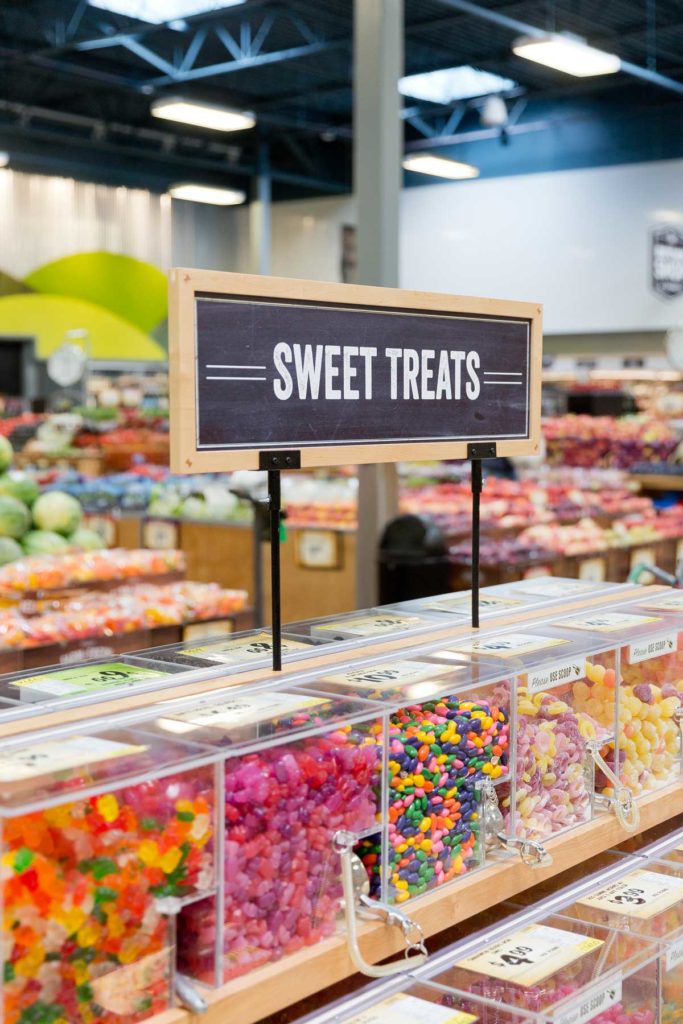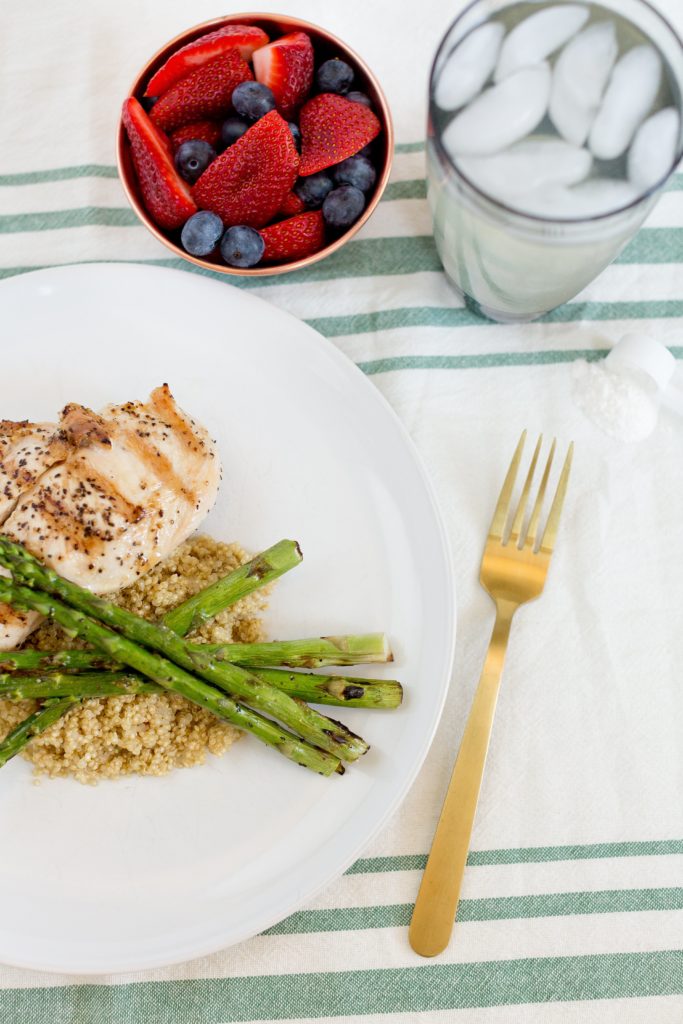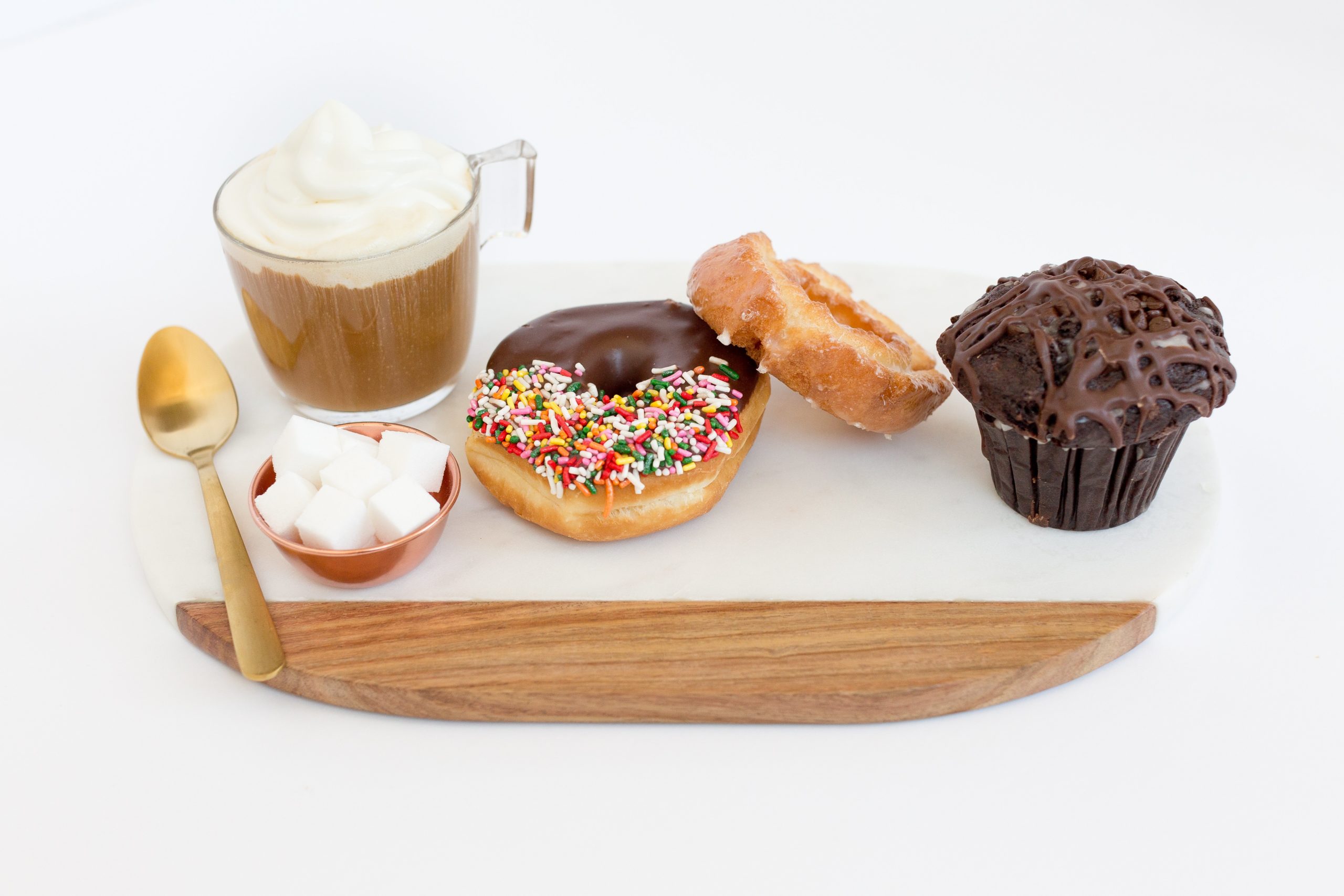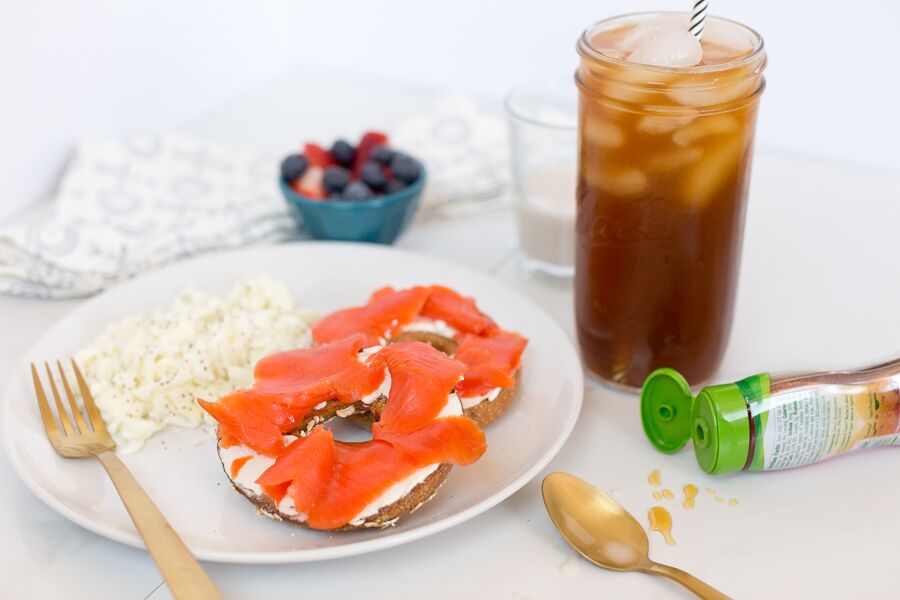No matter where I am or what I’m doing, it’s not uncommon for people to come up to me and ask me questions, and I absolutely love it! I love answering your questions about nutrition, fitness, and everything in between, so I thought, why not answer some of the top nutrition questions I get asked almost daily? Because if one person has a question, you can bet others will have that same question.


Today, I’m diving deep into the 5 nutrition questions I get asked most often, and I hope these answers will help you on your own transformation journey! Ready? Let’s go! First up, the question I get asked most often. Like, I get this question way more often than any other question because I know this is such a struggle for a lot of people.
Question #1. Why am I not losing weight and what are the top three things I should consider first when looking at my nutrition plan?
It can be so frustrating to not see that darn number on the scale go down, but there are some solid reasons that scale is stuck. When this happens to you, ask yourself these 3 questions:
1. Are you in a consistent calorie deficit? If not, then that’s one place to make some changes. Here’s the simple science:
Eat fewer calories than you burn –> Calorie deficit –> Weight loss
Eat more calories than you burn –> Calorie surplus –> Weight gain
Eat the same number of calories that you burn –> Weight maintenance
If you’re not consistently in a calorie deficit, that scale will not go down. It just won’t! So track everything you’re eating every day so you can make sure you’re in a calorie deficit. The only exception to this science is if you eat a reward meal or two on a reward day each week, which is designed to throw you into a calorie surplus for ONLY that one day. How do reward meals work? Your body can get used to your eating routine, potentially causing your metabolism to slow down, resulting in slower weight loss or even a weight loss plateau. Adding in a reward meal or two one day a week (your reward day) can push your body out of that routine and get your metabolism going faster again, which can jump start your weight loss. And a reward day also gives you the opportunity to eat those foods you crave but that might not fit into your plan the rest of the week. That’s a win-win in my book!
2. How’s your sleep? Believe it or not, one of the biggest stumbling blocks for weight loss has nothing to do with what you put into your mouth. It’s all about how long your head is on that pillow every night. Why? When you’re tired, you might fall into any of these lack-of-sleep weight loss traps:
- Skip your workout.
- Get takeout or grab the easiest (and most likely, not plan-friendly) thing to eat because you’re too tired to cook
- Indulge in more cravings
- Eat too many late night snacks
- Eat bigger portions
- Experience more cravings
- Hang onto body fat
- Lower insulin sensitivity
Here’s another thing to think about: When you don’t get enough sleep, a hormone called Ghrelin, which tells you you’re hungry, increases, and a hormone called Leptin, which tells you you’re full, decreases, resulting in the desire to eat more than you need to or even want to during the day. And that’s no bueno for weight loss.
What’s the magic nightly sleep number? Aim for 7-9 hours every. single. night. If that’s tricky, increase your bedtime by 15 minutes a night for a week, every week, until you’re able to dedicate at least 7 hours a night to sleeping.
Need to get more Zzzzs? Get more sleep tips here.
3. How much water are you drinking? Why would water consumption have anything to do with weight loss? More than you know! When any of my clients are struggling with dropping pounds, this is one of the first questions I ask them. Why? Drinking water can…
- Increase fat loss. How? It can spike your metabolic rate and increase the energy (calories) you burn.
- Suppress your appetite since it makes you feel fuller, potentially decreasing your daily calorie consumption as well as crushing those cravings that can be anti-weight loss.
- Make your workouts more efficient by energizing your muscles. Dehydrated muscles just don’t work as well, just like a dehydrated body has a harder time losing fat and feeling healthy.
How much water should you be drinking? Aim for ½ your body weight in ounces every single day. So, if you weigh 150 lbs., aim for 75 ounces a day. If your number sounds hard to achieve, up the amount you drink a little bit every day until you’re hitting your goal consistently.


Question #2. I’m a lifetime emotional eater—how do I break this habit or retrain myself?
I totally get this frustration. Totally. Often, when you’re hit hard emotionally, you go to what’s easy and what will help you feel better the fastest. And that is often food. It could be chocolate, salty foods, baked goods (donuts for the win!), alcohol, or whatever gives you those instant feelings of comfort. But these comfortable feelings are often short-lived, leaving feelings of guilt and failure for you to deal with.
While it can be tricky to handle, especially since emotions can be so powerful, here are 5 tips to keep in mind for whenever those emotions hit and your first thought is to grab your favorite comfort food.
- Keep a journal. Journaling can be the best way to help with emotional eating because the process of writing about your feelings lets you get all those emotions out of your head and heart and onto the paper. In addition to writing out your emotions, dive deeper into why you’re feeling the way you are and even brainstorm some resolutions to what’s going on. Journaling might even take the place of eating those comfort foods!
- Plan ahead. Your emotions aren’t going anywhere, so get proactive and plan for the times when you’ll want those comfort foods by having some healthier options readily available. You’ll still be able to get that instant comfort, but you won’t have those follow up feelings of guilt and failure to deal with.
- Get support. When those emotions hit, talk to a trusted friend who will listen and allow you to talk about what’s going on. This can be so freeing, and you might even figure out some solutions while you’re venting!
- Remove those comfort foods. This might be drastic, but don’t keep your emotional eating comfort foods in your house. If you have to actually go somewhere to get them, you’ll be better able to take a breath, realize what’s going on, and choose a healthier alternative.
- Give yourself some grace. When you find yourself emotionally eating, learn from the experience and use this new knowledge to help make better choices the next time the desire to grab those comfort foods hits. Because it will happen again!
Question #3. Is it okay to eat late at night?
This is a great question, and there are differing opinions on eating late at night. Here’s what I think: One of the problems with eating at night (after dinner) is that we often tend to eat without limits. We could be on plan all day long, and then we get comfy in front of a favorite show, we get a bit hungry or snacky, and we eat way too much. Another problem is that we might not actually be hungry, so it’s important to stop before you eat and ask yourself if you’re truly hungry or just bored, or stressed, or anxious, or whatever reasons you might have for emotional eating.


There are some benefits to eating at night, but again, these benefits only work if you’re staying within your daily calories.
- Eating at night might help you sleep better since you won’t go to bed with a hungry stomach.
- Eating at night might help your blood sugar stay at optimal levels throughout the night and into the morning.
- Eating at night might actually help you lose weight since you’ll be eating a scheduled snack instead of just mindlessly grazing.
Here’s the key: Do what works best for you. If eating at night works for you and you can stay within your calories for the day, then go for it! If you often find yourself feeling snacky at night, plan for that snack and eat only what you’ve planned. If eating at night doesn’t serve you, find something else to do to instead: Read a book, take a walk, take a soothing bath, and so on.
Question #4. What are the best tips for staying consistent with macros? Is one macro more important than the others?
You’ve probably heard me say this over and over again: “If you fail to plan, you are planning to fail.” Those are some wise words from Benjamin Franklin, and he’s totally right. Planning is key to hitting your macros every day. I highly recommend planning your entire day the night before or in the morning before you eat anything. That way, you don’t end up towards the end of the day with a lot of macros left over OR a lot of one macro to eat OR in a macros deficit. Been there, done that. And it’s no fun! In addition to planning, recording everything you put into your mouth is crucial too. Even if it will put you over your macros for the day. If you don’t know exactly what you’re eating, it’s going to be very difficult to achieve your goal.
I’m deep diving into macros and macro tracking in this post—check it out!
Now for the second part of this question: What’s the most important macro? While they’re all important for different reasons, after aiming to hit your daily calorie goal, I’d put priority #2 at hitting your protein goal for the day. Why? Basically, protein helps build and repair pretty much everything in our bodies: Bones, muscle, cartilage, skin, blood, hair, nails, enzymes, hormones, and other body chemicals. Plus, it’s the most satiating nutrient, so you’ll feel fuller longer when you eat protein, which means you’ll be less hungry throughout the day AND you’ll be less tempted to eat food that might not exactly be on plan.
Confused about protein? I’m ending the confusion here.


Question #5. How can I eat within my meal plan (my portions and macros) when others in my family are eating larger portions and/or indulging?
This one can be tough. Especially when the other people sitting at the table are eating foods that aren’t on your plan. And making additional meals is just not sustainable. Or fun.
Here are 3 ideas to help:
- Remember. Remember your goal. Remember your integrity. Remember how you’ll feel if you overindulge or eat foods that are off-plan. Remember how you’ll feel when you stick to your plan! Use that motivation when you fill your plate with the right portion sizes and on-plan foods.
- Follow the 80/20 rule. Eat whole, on-plan foods 80% of the time, and then fill that other 20% with off-plan foods—those indulgences. Watch your portion sizes, and if any foods send you down that slippery slope to overeating, skip them and substitute something else that feels like an indulgence but that will help keep you on plan.
- Keep a scale handy. Don’t try and eyeball your portion sizes because you’ll often eat more than you think. Our eyeballs are NOT very reliable. When you have kids at the table, explain that you have health-related goals you want to hit, and measuring your food helps you fuel your body correctly so you can reach those goals. It’s best not to bring weight loss into the conversation as it can teach kids the wrong ideas about health and body image.
So, there you have it! I hope these answers to your top 5 nutrition questions will be super helpful as you continue on the pathway to achieve your goals. What other fitness + nutrition questions do you have? Leave ‘em in a comment below, and you just might see them in a future blog post!
xo,
Related reading:
10 Tips to Crush those Cravings—For Good!
What I Eat in a Day as a Fit Mom of 4
Weight Gain During Period: 4 Ways to Combat That Time of the Month
How to Drink Water When You Don’t Like the Taste
Emotional Eating: How To Take Control + What You Can Do to Stop Stress Eating









2 Responses
Great tips for a midnight grazer like me. I’m learning to plan better and stay within my macros, because of you! Thanks.
I’m so glad they were helpful, Lezlie! ❤️ So proud of you!